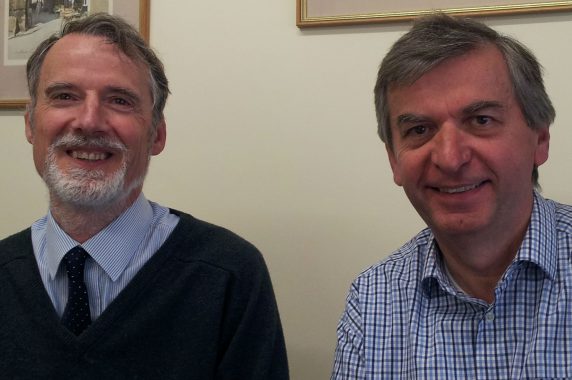How job-sharing stopped us from retiring

With increased attention on retaining older GPs, including revamping the retainer scheme, we have found a way to stay on in general practice: job sharing.
We are both the same age and partners at the same practice, and recognised that once we turned 60 we might like to reduce hours, but did not want fully to retire. After thinking about more standard models of part-time working, one of our wives suggested we each work one month on, one month off, alternately throughout the year, working full time on the month on (for our practice this is eight sessions per week).
The essential prerequisites for such an arrangement are an enjoyment of general practice, supportive partners in the practice and at home, and trust in each other’s clinical ability and values. We are fortunate enough to be able to tick all those boxes.
Setting up
The allocation of months was made fairly easily as one of us has a school age child (school holidays off please – February, April, June, August, October, December) and the other’s children are grown up and away (empty nest time off please – January, March, May, July, September, November). A minor adjustment is made because of a holiday timeshare held by one of us, which occurs in a working month, so one month is a ‘short’ month made up by a ‘long’ month elsewhere. The detailed calendar for the year is planned in advance.
We carry out the same fixed appointment schedule whichever doctor is present so that from the perspective of the practice there is one of us present all the time. This means they have the equivalent of 1.2 full-time doctors as no holiday arrangements or cover are needed. We also attend away days and some meetings and keep in email contact with the practice during months off, which means that significant partnership business (as distinct from clinical sessions) is kept moving. We have a handover session before starting a month on to enable specific patient and practice information to be transferred between us.
Telling others
We first raised this possibility with partners about 18 months in advance. They took a little time to make a final decision but once the benefits had been thought through and the challenges identified, they were fully supportive and we still had about a year to plan.
We wrote a positive and upbeat letter to patients, emphasising that the two senior doctors in the practice were choosing to carry on working rather than retiring. We left the letter for general pick up in the practice, informed the patient participation group, wrote on the website and practice newsletter as well as speaking to patients in consultations. We were pleased by how readily patients accepted and understood the arrangement.
Patients have tended to wait to see their usual doctor but have used both when required. It has probably been helpful that we are of the same gender and consulting style.
A positive arrangement
We have done this since April 2015, and we feel that this has been a positive arrangement for all. We both feel we have regained a spring in our step professionally, as we have time off to recuperate from the workload but not so long that we disengage. On the downside we have noted that there is a considerable volume of administration to be done in the ‘month on’ as one doctor is essentially running two lists but this is manageable provided the extra hours are put in. On the upside, that level of work does not have to be sustained for more than four weeks. Feedback from our colleagues has been helpful in improving communications and there is interest in carrying the scheme forward to another pair of doctors in due course, probably the best recommendation that could be given. Meanwhile we have been able to enjoy various ‘retirement’ pursuits while continuing working – in one case golf, music and foreign travel and in the other archaeological digs, and sailing. It has also allowed increased support to elderly relatives and for one of us, grandchildren.
We see no reason why other primary care partnerships could not consider this model. Considering different models of job share may help the NHS to retain skilled and experienced older staff at a time when there is particular stress on the medical workforce.
Dr Nigel Gough and Dr James Heffer are GPs in Bradford-on-Avon









